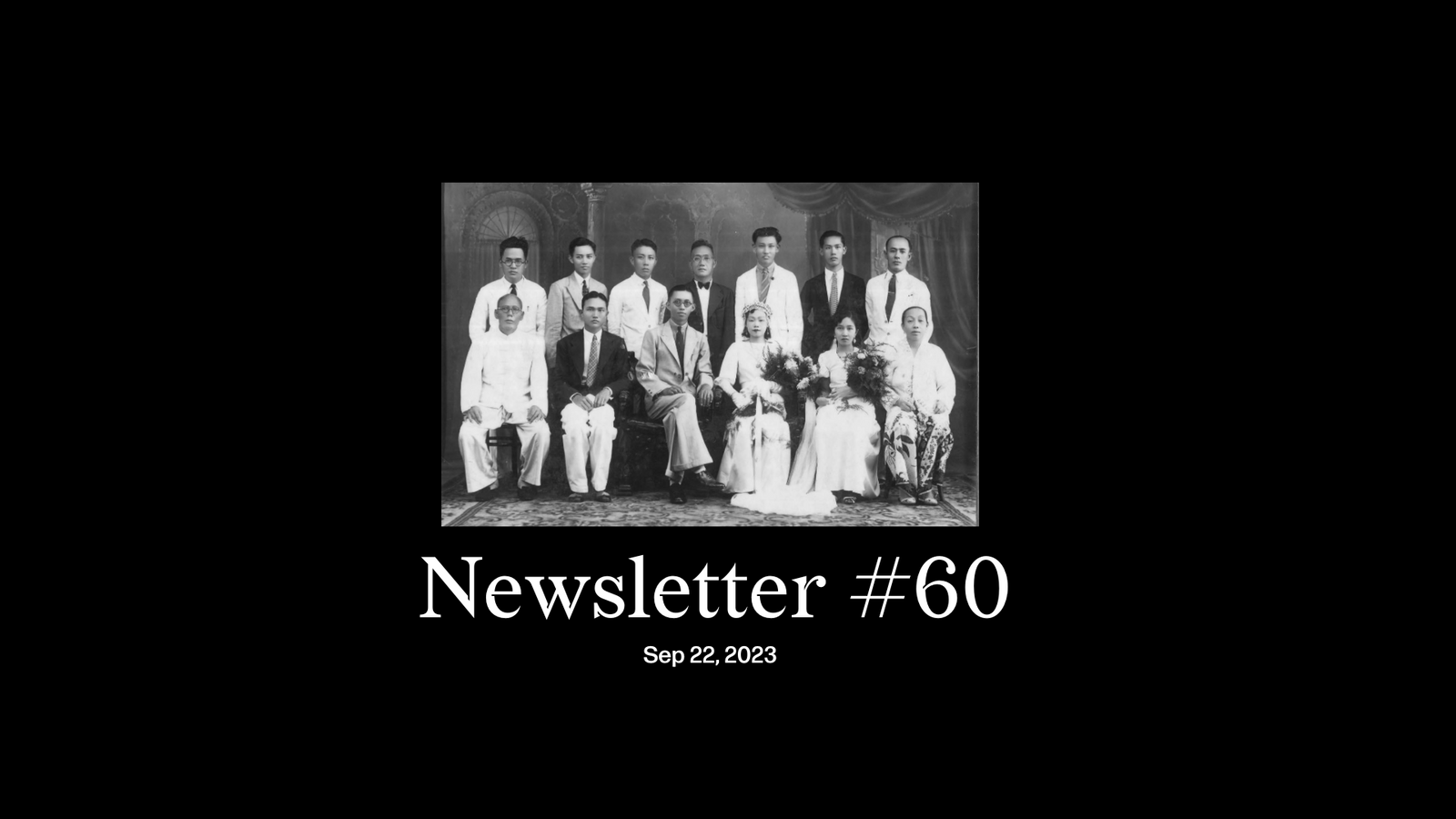Dear reader,
Our team is expanding! We’re looking to hire an arts editor, a part-time position. More details here. Do forward this to friends you think might be suitable.
Next, some shout-outs, first to the Jomrades who’ve written new letters in response to our recent essays: C Chee, Isaac Neo, Sathia Varqa, and Yuen Chung Kwong. Thanks for helping foster our Jommunity’s discourse. Other letters to the editor can be sent to sudhir@jom.media.
A big thanks also to Eugene, Frederic, Ivan and Miriam—you know who you are—for sharing your thoughts on whether Jom should continue with our POFMA case at the Court of Appeal. One of the many interesting debates was about whether pursuing this is in keeping with Jom’s mission. Some thought yes, others no. In the end, we decided to apply for the permission to appeal. We’ll keep you posted.
And here’s another question for you. Should Jom write a critique of CNA’s LKY 100 documentaries? I watched bits of one last week, and while I enjoyed many aspects of the production and storytelling, I was (predictably) dismayed by the cherry-picking and lack of criticality about his actions and words. But maybe it’s unfair to expect that from journalists working for a state-sponsored media outlet.
(Check out this cool note on LinkedIn from the project lead, about the team of “producers and researchers who were either Millennials or Gen Zs, in their 20s and 30s.”)
And so perhaps that’s the role that Jom should be playing in Singapore’s media landscape: filling in information gaps that the mainstream media, by design, will leave. Or maybe not. The main counter-argument is that we should just stop talking about LKY and not keep feeding this frenzy. Some of you have long argued this, so much so that Jom published a piece earlier this year, “Why always LKY?”
Anyhow, should we now work on a critique of the series? Reply, we’d love to hear your thoughts.
Meanwhile, in keeping with our desire to narrate the Singapore story through the eyes of others (and not just the men in white), our two pieces this week chart quite different historical arcs. “knee-deep in debt in darkness” is a review of Wong May’s A Bad Girl’s Book of Animals.
Wong May was born in Chongqing in 1944 and moved to Singapore at the age of six. She published A Bad Girl’s Book of Animals in 1969. Ethos Books has just reissued it, 54 years later. And we’re so pleased that it’s been reviewed for Jom by Marylyn Tan, a Chinese Singaporean writer-artist who is, in her words, “the first woman poet (woet) to clinch the Singapore Literature Prize.”
It’s fascinating throughout to read how a young woman’s lived experience in post-war Singapore resonates with another today.
“There is a deep loneliness that permeates much of Wong’s work, a dedication that says ‘Dear Mama’, and much on love,” Marylyn writes. “Wong’s deft brushstrokes delineating the loneliness of the female experience strike me particularly, and are often underlaid by accusations (whether self-administered or otherwise) of selfishness.”
A much longer arc is charted by Pang Sze Yunn, who spearheaded a project to translate her family’s 600-year-old genealogy book from classical Chinese into modern Chinese and English. Sze Yunn, who began her career at the Ministry of Foreign Affairs and is now CEO of Neurowyzr, a neuroscience start-up, can trace her ancestry back to Feng Yonghui, a 14th century imperial scholar who was posted to Hainan Island as a government official.
She responded to an e-mail Q&A about this project that spans continents and centuries. Like Marylyn felt with Wong, Sze Yunn seems to draw inspiration from anecdotes from even further back:
“In my direct bloodline are many examples of women who have gone against the view of women as passive and subservient participants. One example was Lady Xian (冼夫人) (512-602 AD), an ethnic minority from the Li tribe, who married into the Feng family in the Liang Dynasty (502–558 AD). Before marriage, Lady Xian was already a respected tribal leader in her own right, famous as a leader who cared for her tribe and led troops into battle against local rebels.”
Another woman who certainly defies any stereotype of “passive and subservient” is Preeti Nair aka Preetipls. She is the fourth and final endorser of Jom—after Teo You Yenn, Walid Abdullah, and Dominic Ziegler—in our first-ever advertising campaign.
I do hope this is the first of many collaborations between Jom and Preeti. We’ve discussed other long-term video projects. We all know how great she is on screen. Preeti is, among many other things, just so brilliant at delivering social criticism through satire. We all hope to learn from her by working together.
Read the full endorsement from Singapore’s top Jomrade below. We’re so happy that she’s now finally, officially, part of our Jommunity.
Jom!
Sudhir Vadaketh
Editor-in-chief, Jom
p.s. Hope to see you at the SG Climate Rally tomorrow afternoon at Hong Lim Park.






